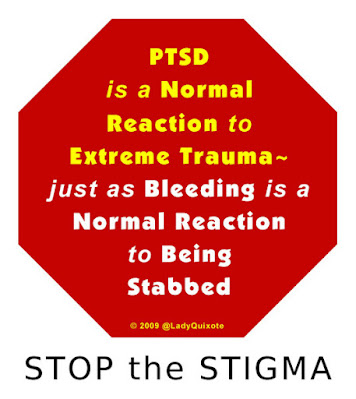
Back in November 2001 through August 2002, I hitchhiked in and out of St. John, Kansas quite a bit. St. John was my home base during that time. I would stay at one of a few places, do odd jobs and then I would hit the road.
A couple of people that I would stay with were a man and his wife. He was in his late fifties and she was in her early sixties. I don't remember their names, but let's call him Frank.
Frank was a Vietnam Vet who served in the U.S. Army in 1965-1966. He was exposed to Agent Orange and was on full medical disability. Frank was on his second marriage.
One day Frank and I were in the kitchen--I was sitting at the table and he was standing at the counter. I told him some of the things that I had experienced in my past: I went through a lot of rejection from family, friends and church people because of my Christian faith.
Dad put me in mental hospitals, had me pay $5000.00 worth in hospital bills and then later told me that he paid for everything. My dad had absolutely no integrity whatsoever.
Frank then turned around and stared at me. He said, rather forcefully, "You're suffering from PTSD (Post Traumatic Stress Disorder)!"
I replied, "No way! You're crazy! I never was in the military and I never was in combat!"
Frank said, "You don't have to be in combat to have PTSD."
I said something like, "How can I have PTSD? There is no way I have PTSD." I was dumbfounded.
Then Frank got really angry and said, "I was in Vietnam. I saw many guys who were in serious firefights and you have the same symptoms as they do."
I didn't know what to think. The Lord puts people in your path for a reason. Maybe I was meant to hear what he had to say.
Eventually, I quit hitchhiking through St. John, Kansas and started hitchhiking in Wyoming, Idaho and Montana more often.
In the spring and summer of 2008, I passed through St. John, Kansas and tried to look up the people that I knew back in 2002; most of them had moved away.
I sometimes think back on that conversation. There may have been some truth to what Frank had said. I do know that through Jesus is great redemption. Repentance from sin and forgiveness for other people's trespasses are very powerful.
The moral of the story:
Don't call a Vietnam Vet crazy and. . .
. . . Sometimes a blind man doesn't know he is blind until someone tells him that he is blind.
[Originally published by Digihitch.com]
Post Traumatic Stress Disorder (PTSD)
The Jerry Shey Family
Dream: Escape from the Shey Farm
Gaslighting
Emotional Abuse
My commentary on the film FIRST BLOOD (1982):
Sylvester Stallone does a great job of portraying someone who is suffering from some serious battlefield trauma and the effects of torture. Look at his thousand-yard stare: classic PTSD. He serves his country in an unpopular war and comes home where people spit at him and call him “baby killer”. He goes through hell in Vietnam and is rejected by so many in his own country.
The last scene with Colonel Trautman at the sheriff’s office where he is weeping before being taken into custody: a very powerful and moving scene. The war is not over for John Rambo. Painful memories persist. All of his friends are gone. A stranger in a strange land. I don’t know why Stallone did not get nominated for an Academy Award.
“As George Orwell pointed out, people sleep peacefully in their beds at night only because rough men stand ready to do violence on their behalf.”
–Richard Grenier


Behaviors of People Abused by Narcissists
ReplyDelete1.) Excessive Self Blame
2.) Hypervigilant
3.) People Pleasing Behaviors
4.) Self Isolation
5.) Boundary Issues
6.) Chronic Self Doubt
7.) Compulsive Apologizing
8.) Idealize New Relationships
9.) Imposter Syndrome
10.) Difficulty Expressing Emotions